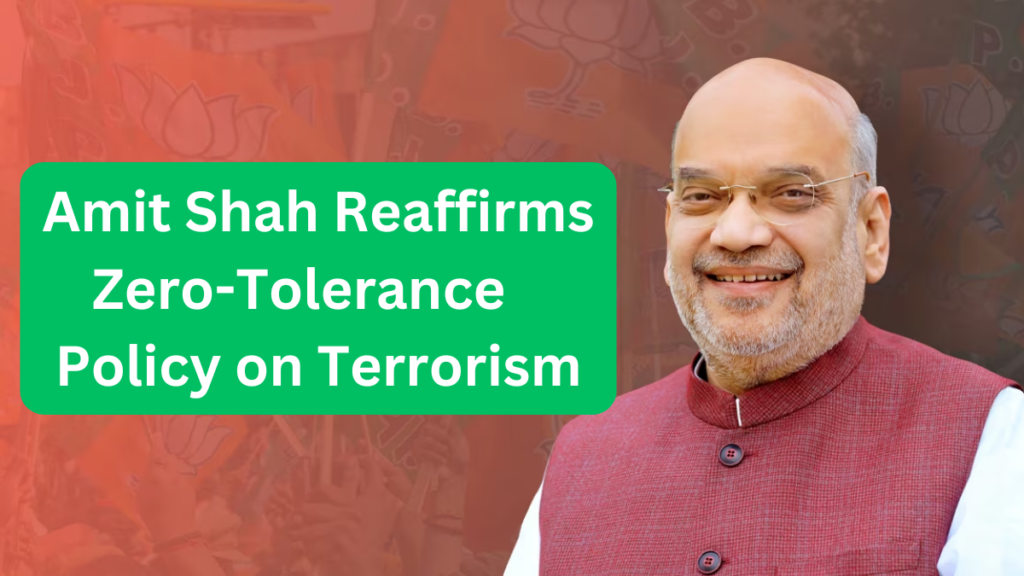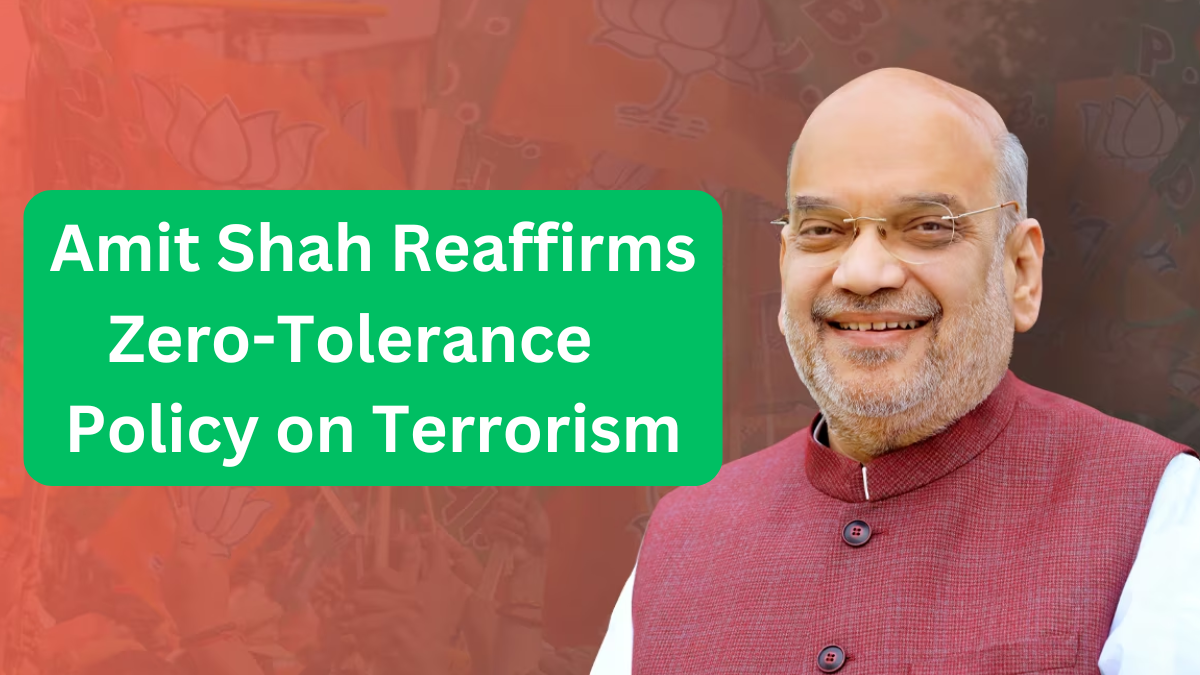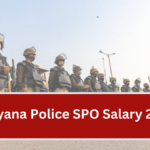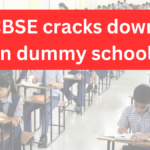Union Home Minister Amit Shah reiterated the Narendra Modi-led government’s firm stance against terrorism during a session in the Rajya Sabha, emphasizing its zero-tolerance policy. While addressing the discussion on the functioning of the Ministry of Home Affairs (MHA), Shah criticized previous administrations for their lenient approach and highlighted significant structural reforms undertaken in the last decade.

Honoring the Sacrifices of Security Forces
Amit Shah paid tribute to security personnel who have laid down their lives for the nation’s safety. He acknowledged the contributions of both state police forces and central paramilitary personnel in maintaining internal security and strengthening border protection.
His statement:
- “First of all, I express my gratitude to thousands of state police and central paramilitary force jawans who made the supreme sacrifice to strengthen the country’s internal security as well as borders.”
Law & Order vs. National Security: A Distinct Responsibility
Shah clarified the division of re sponsibilities between state governments and the MHA:
- Law and order is a state subject.
- National security, border management, and internal security fall under the jurisdiction of the MHA.
With the rise of evolving threats, he stressed the necessity of adapting national security mechanisms to address modern challenges such as:
- Cybercrime
- Narcotics trafficking
- Hawala transactions
- Organized crime networks
- Cross-border terrorism
Addressing Emerging Security Threats
Shah pointed out that many crimes now extend beyond state boundaries and are often orchestrated from outside India. He explained:
- “Several kinds of crime do not remain limited to state borders. They are both inter-state as well as multi-state – like narcotics, cybercrime, organized crime gangs, hawala. Some crimes are even executed from outside India. Keeping all this in view, it becomes essential to make changes in MHA.”
These security threats necessitate enhanced coordination and rapid reforms to safeguard the nation effectively.
Major Reforms in the MHA Under Modi Government
Over the last ten years, the Modi government has implemented significant structural changes in the Ministry of Home Affairs to strengthen national security. Shah highlighted the impact of these reforms:
Key initiatives include:
- Upgrading counter-terrorism measures to proactively tackle threats.
- Strengthening intelligence networks for better threat detection and prevention.
- Enhancing border security through improved surveillance and infrastructure.
- Crackdown on organized crime and financial fraud like hawala transactions and cybercrimes.
- Better coordination among states and central agencies to handle multi-state crimes effectively.
He emphasized, “I say this with pride that in 10 years, PM Narendra Modi made long-overdue changes to the MHA at once to ensure national security.”
FAQs
1. What is the government’s stance on terrorism?
The Modi government follows a strict zero-tolerance policy on terrorism, implementing robust security measures and reforms to counter national security threats.
2. How has the government improved border security?
The MHA has strengthened border security through advanced surveillance technologies, better infrastructure, and increased deployment of forces to prevent illegal activities and cross-border infiltration.
3. How does the MHA tackle cybercrime and financial fraud?
Through advanced intelligence networks, stricter regulations, and international collaboration, the government has intensified its crackdown on cybercrime, hawala transactions, and organized financial fraud.
4. What role does state law enforcement play in national security?
While law and order is a state subject, national security and major crimes affecting multiple states or originating from outside India come under the MHA’s jurisdiction, requiring coordinated efforts between state and central agencies.
The Modi-led government remains committed to strengthening India’s internal security through continuous reforms, ensuring a proactive approach to evolving threats, and fostering better coordination between national and state security agencies.
Click here to learn more
Pari is a passionate writer known for captivating stories that blend imagination and reality. Inspired by travel, history, and everyday moments, Pari crafts narratives that resonate deeply with readers.




